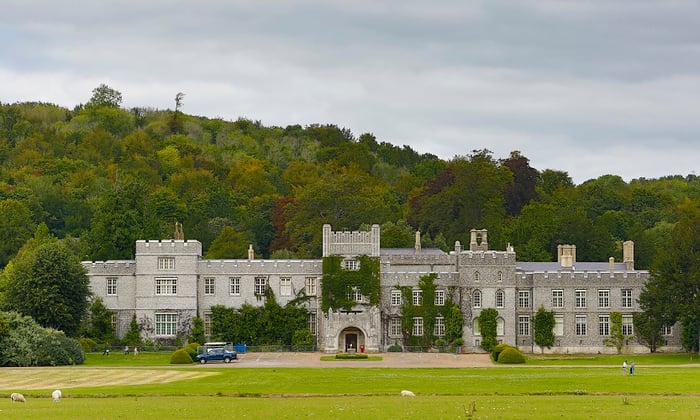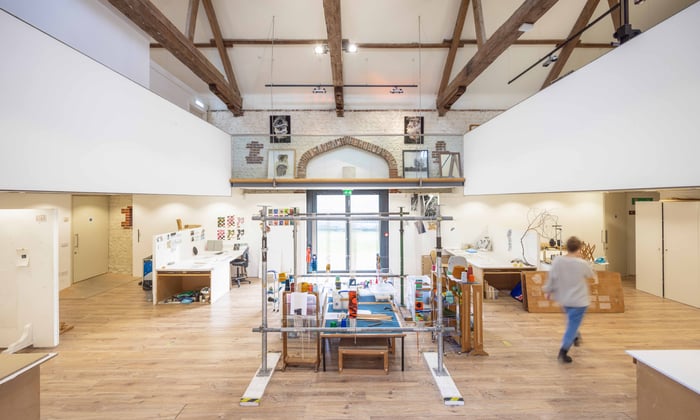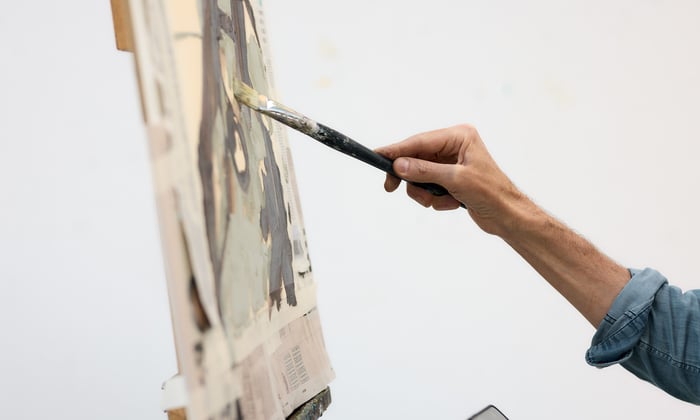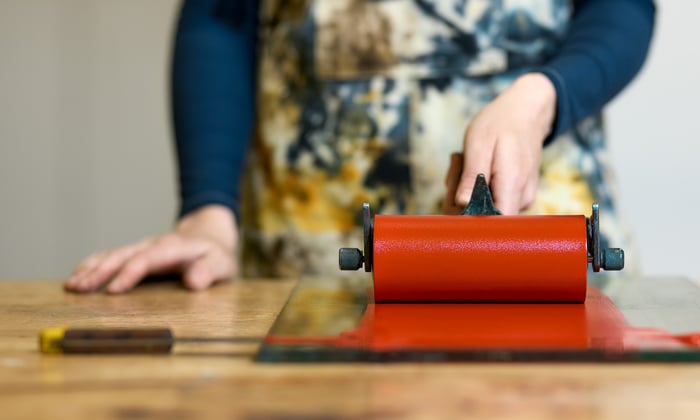
Craft Practices
Foundation Degree Arts - Clocks
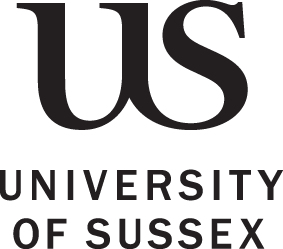
Virtual Open Day - 17 February 2026 - Register now
Award: Foundation Degree Arts - Clocks
Duration: 2 academic years, full time (September 2026)
School: School of Arts
Campus: West Dean
UCAS code: FCL1
Scholarships and bursaries: See available funding
Equip yourself for a career in clock making and working with dynamic objects, by acquiring the practical and technical skills, the theory, principles and techniques used in historic horological manufacture. This foundation degree programme begins with practical exercises to help you establish hand and machine tool skills relating to historic craft practices in clock making.
You will make your own clock before working on a range of historic clocks; this bench-based activity is integrated with theory and professional practice. Learn how to combine and use this knowledge when making treatment decisions as a professional practitioner.
On successful completion of this course graduates can advance into the workplace or set up as freelance makers. If however, you wish to progress further in higher education, then those who are interested in making are able to undertake an additional year to achieve a BA (Hons) Craft Practices, and potentially progress on to our MFA Crafts Practices, which offer a ceramics pathway. For those interested in pursuing a career in conservation they can advance onto the Graduate Diploma and MA in Conservation Studies.
Learning environment
- Low student: tutor ratio
- Workshop access: 8.30am -9pm, seven days a week*
- A stimulating and interdisciplinary environment
- Visits of specialists from the heritage and private sectors
- Active links with heritage bodies
You can expect
- To develop excellent practical skills through object-based treatments
- To learn the principles and techniques of historical horological manufacture and repair
- To work on historic objects
Interdisciplinary study
Students are encouraged to collaborate with other College departments, particularly the full-time programmes in the School of Conservation, making the most of the wide range of specialist knowledge, materials and equipment that is available.
Read more about studying horology, clocks and related objects
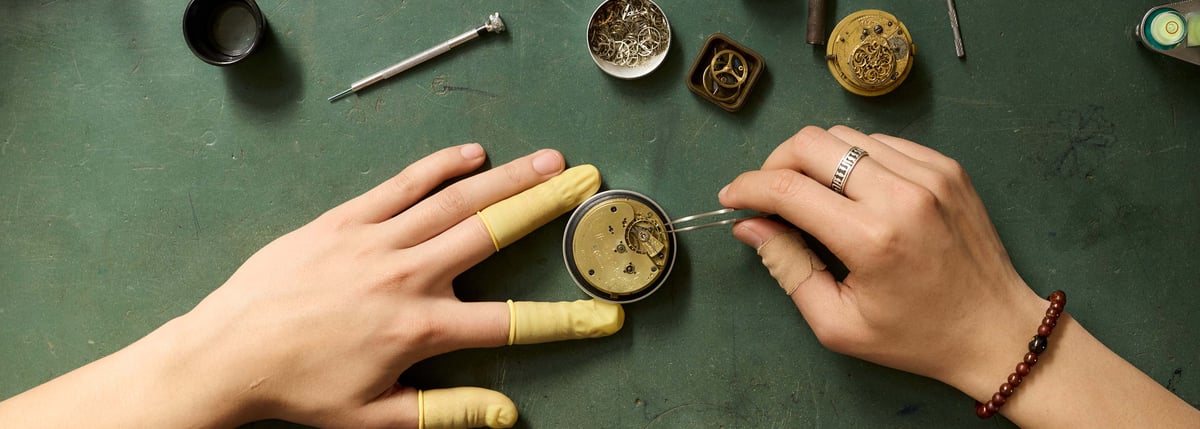
Virtual tour & gallery
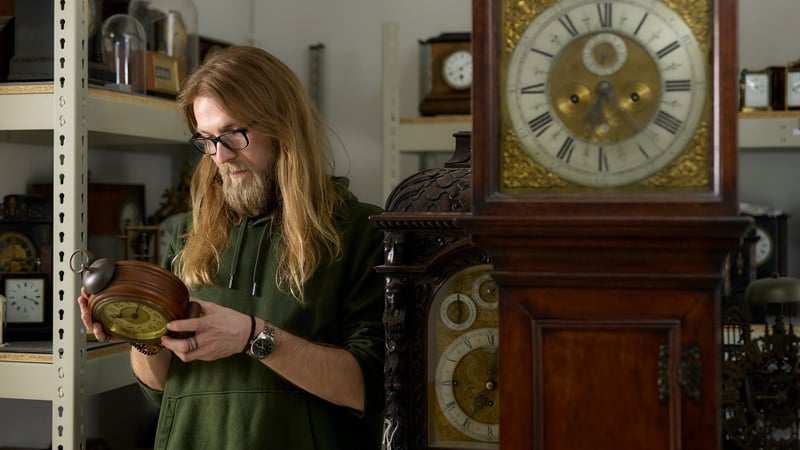
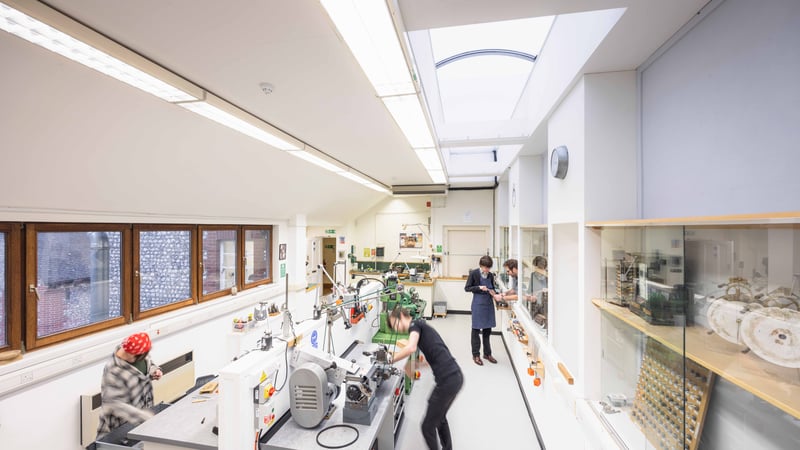
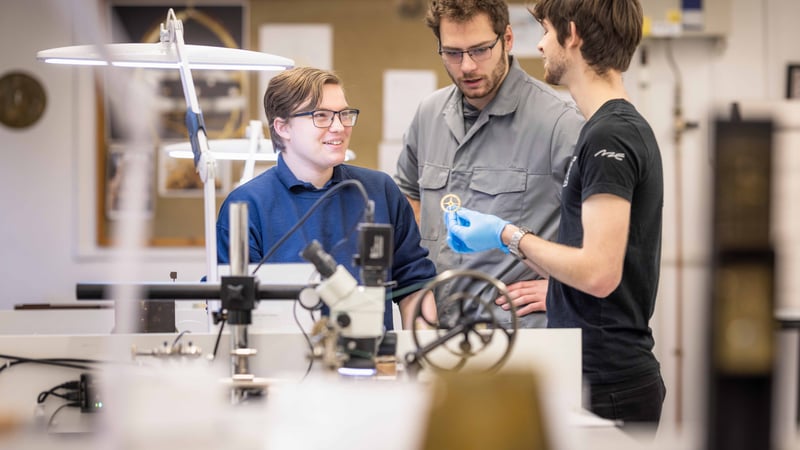
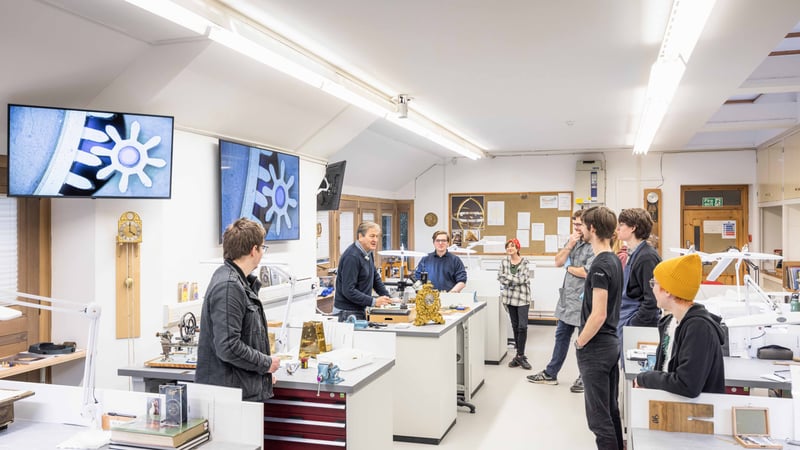
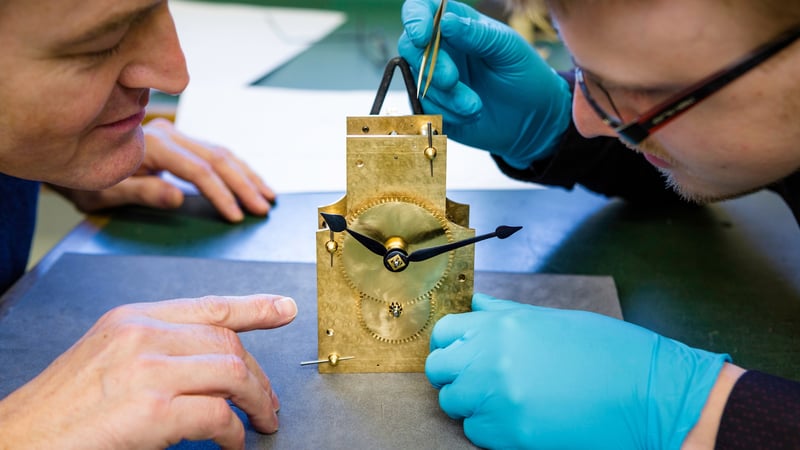

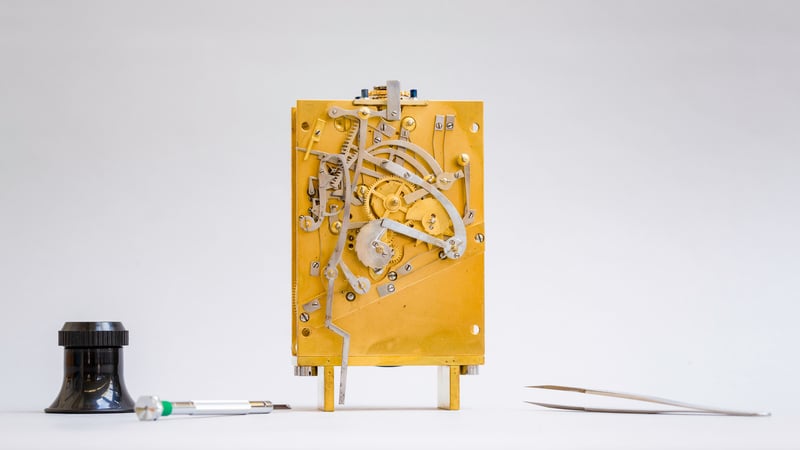
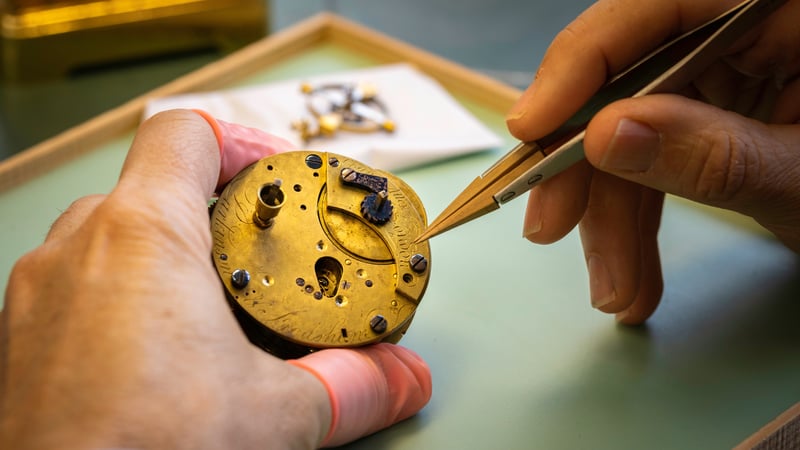
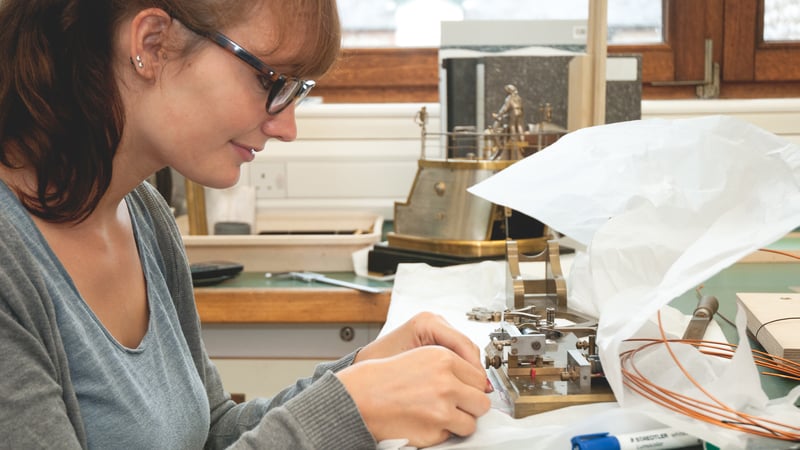
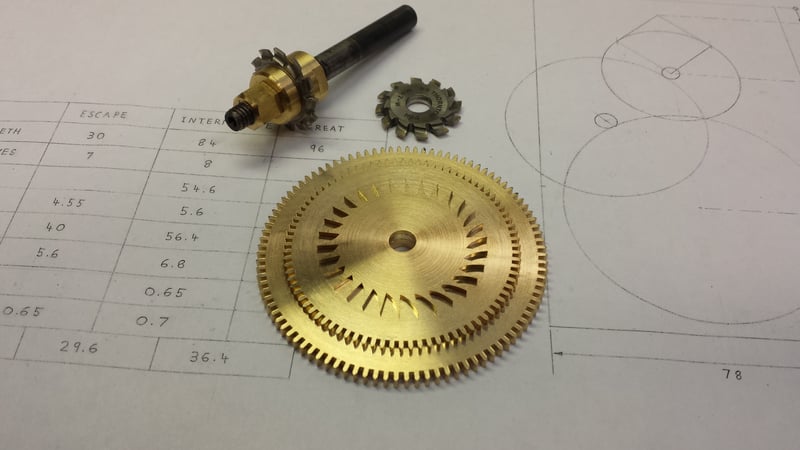
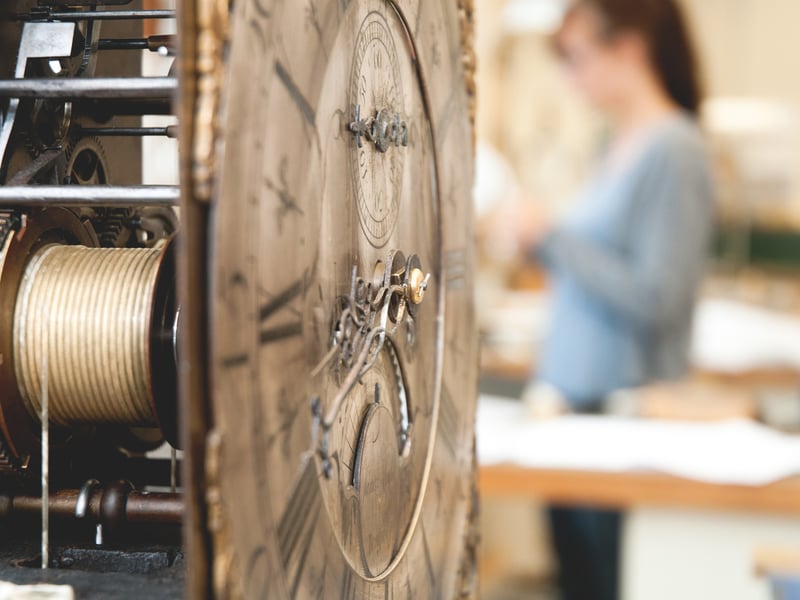
Careers
Graduates go on to work as clockmakers and designers, repairers, restorers, sellers or advisors. There are many areas of specialism within the profession and interest nationally and internationally in clocks.
Student Comment
"For me one of the best things about studying at West Dean College is the inter-disciplinary nature of the place. The fact that as a 1st year student with relatively little experience I'm getting to work alongside MA students and learn from what they're doing. I can experience the things that they are experiencing and also the fact that I can augment my research by speaking to students from entirely different disciplines."
Dale, FdA Clocks
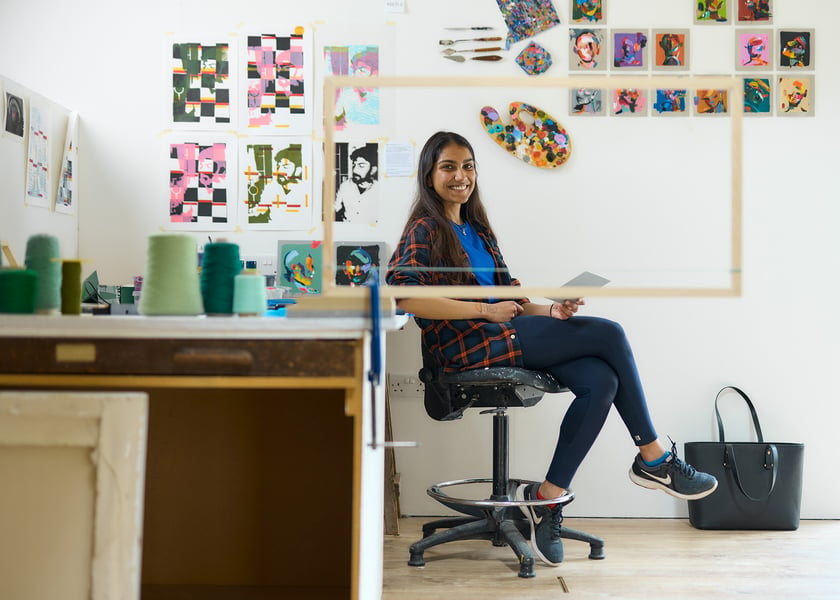
School of Arts
Explore and expand your work in a uniquely immersive environment with its own connections to art history. Our School of Arts students enjoy specialist studio spaces dedicated to painting and drawing, sculpture and tapestry and textile-based work as well as exceptional exhibition space.
Fees & funding
2026/27 Tuition fees
UK Home students
• £14,950
International students
• £16,950
Find out more about tuition fees and admissions.
Funding
You may be eligible to apply for a Student Loan to cover course fees and/or maintenance; more information can be found on the Government Student Finance website.
Scholarships and Bursaries are also available based on individual need.
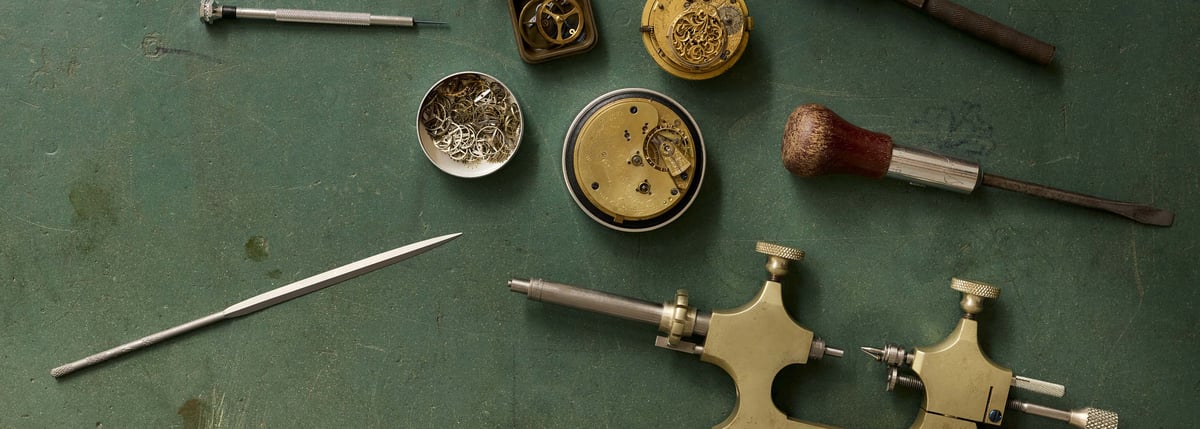
Entry requirements
- UCAS tariff points: 120 - Completion of level 3 qualifications, for example: A-Levels, BTEC or Foundation Diploma in Art and Design.
- Applicants can be considered if they can provide evidence of prior learning and provide a digital portfolio.
- E portfolio of work related to application (optional at point of application. A portfolio will be requested if shortlisted for an interview) The portfolio should evidence commitment to the discipline. It could include sketchbooks, technical and material exploration, design work, project development from start to finish, detailed images of finished work. Where possible, applicants are encouraged to include a video of working on a practical exercise as part of the portfolio, of which the College can provide guidance if required (see below). If applicants cannot provide a portfolio, the College will provide a practical exercise that can be done remotely to asses mental agility and dexterity and suitability for this skills based programme.
- International students must provide evidence of English language ability to Level B2 (IELTS 6.0), as well as equivalent level 3 qualifications.
How to create a portfolio
Do you need help creating a portfolio to apply for one of our FdA courses? Read our portfolio advice to learn about the general requirements, what we look for in a good portfolio, and what it should reflect.
How to apply
UCAS - If you are applying for more than one institution, all applications must be made through UCAS
Direct - If you only wish to apply to West Dean, applications for this course can be made by submitting a completed application form and emailing it to [email protected].
FAQs
What level of qualification is the Foundation Degree?
The Foundation Degree Arts is a Level 5 qualification and equivalent to the first 2 years of our BA (Hons) in Craft Practices.
Entry requirements ask for a portfolio. What is this and what should be included?
Students need to prepare a digital portfolio to evidence their manual dexterity and their interest in the area of craft practice they have chosen. It could include sketches, images of finished work, videos of them working with their hands. Read more tips on preparing a digital portfolio.
I have no experience and therefore no portfolio – can I still apply?
If applicants cannot provide a portfolio, we will ask you to complete a practical exercise to assess mental agility and dexterity and suitability for this skills-based programme. Assessments take place onsite at the college workshops or remotely when it is not possible to come into college.
What do students do after their Foundation degree?
This course is designed to give you well-rounded theory and craft skills. You can set up as a self-employed maker or find employment in this or a creative industry sector. The Foundation degree is also an excellent first step before progressing to the BA (Hons) Craft Practises if you wished to pursue a career in making, or the Graduate Diploma in Conservation Studies if you wish to pursue a career in Conservation.
Ask a question
Need more information? Have a question? Speak to our course advisors
Email: [email protected]
Phone: +44 01243 818 300 and select option 1
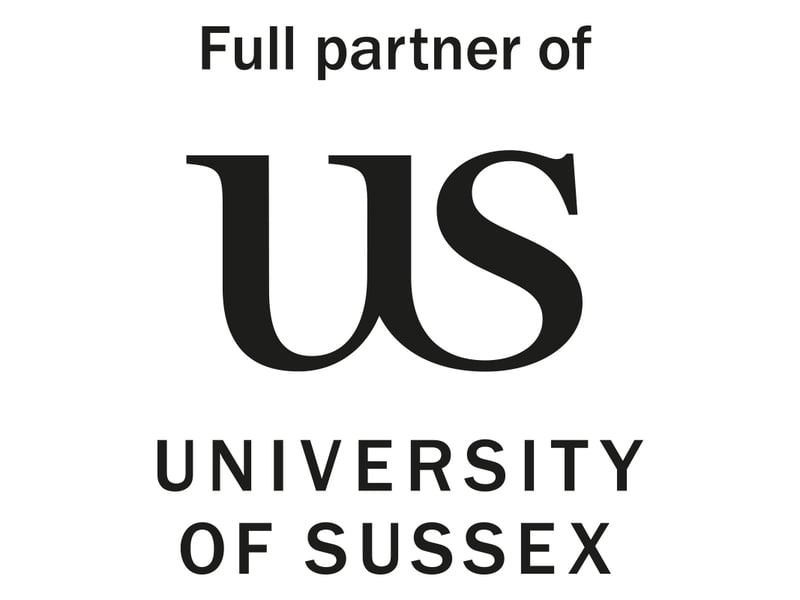
Commendations
Commendations from the University of Sussex include:
"The high quality student experience and strength of student representation within the College."
"The introduction of a “maker-in-residence” scheme to the FdA."
"Responding to employer and student feedback in extending the work placement from 2 weeks to 4 weeks to support employability after graduation."
"The range of tailored study trips to suit different student cohorts."
School of Arts news
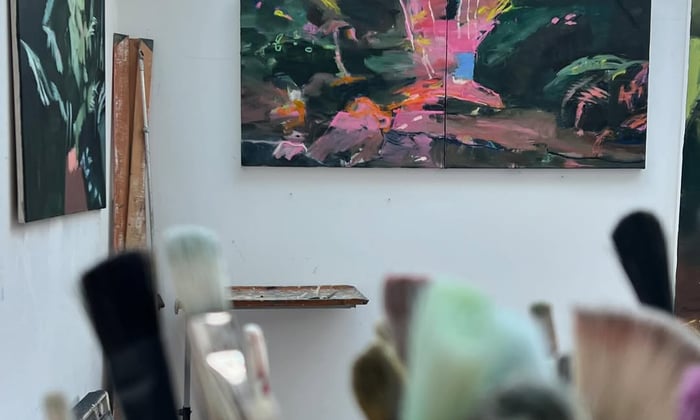
Life after Graduation: Art with Pippa Blake
For artist and West Dean alumna Pippa Blake, the road (or rather the sea) to a career in painting has been anything but conventional. A graduate of the very first Visual Arts postgraduate diploma cohort in 2004 (now the Graduate Diploma in Fine Art), Pippa has led a rich life that spans continents, adventures, loss, and rediscovery.
“I’ve always been a painter,&rdquo...
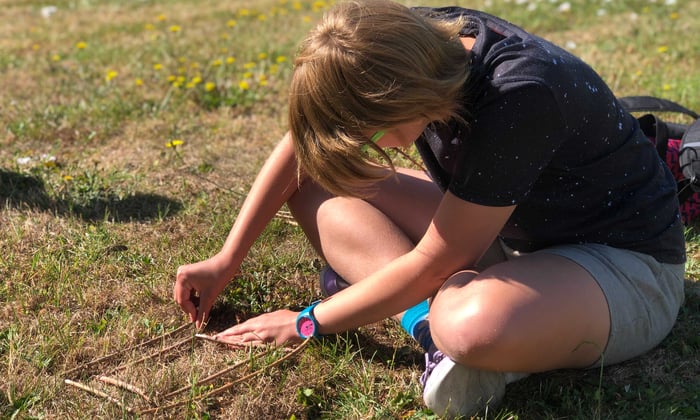
The Regis School sculpt in the landscape
Short course tutor Dan Lobb recently visited The Regis School to deliver Sculpture in the Landscape workshops to Years 9 and 10 as part of their Super Curricular day. Pupils were off-timetable for the day, participating in creative activities they wouldn’t normally have the chance to do. In his introduction, Dan explained that this session was about using materials found naturall...
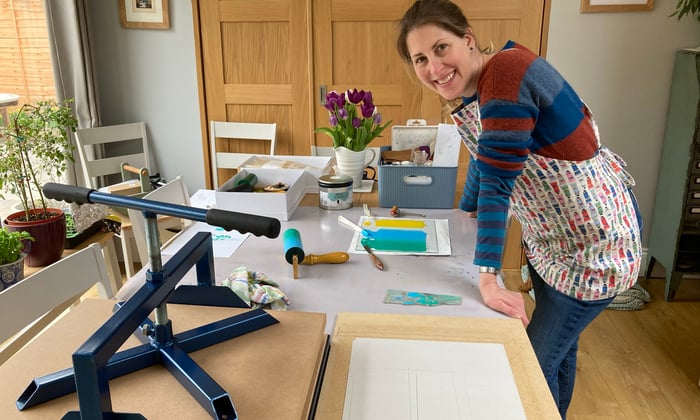
Realising the dream of becoming an artist
By Jo Boddy, Foundation Diploma in Art and Design alumna 2021
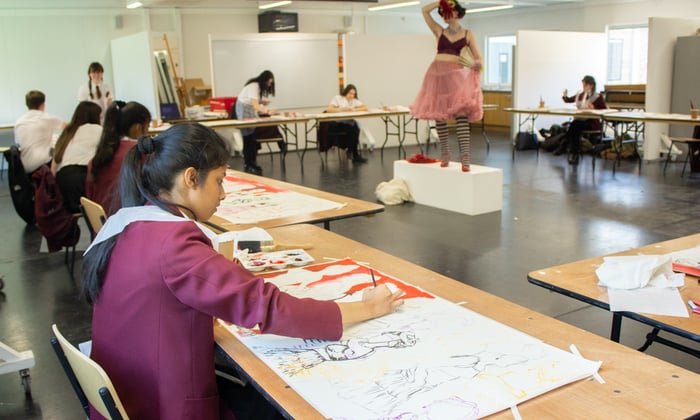
St Philip Howard Life Drawing Day
West Dean College of Arts and Conservation recently welcomed 30 budding Year 10 artists from St Philip Howard Catholic School for a life drawing lesson delivered by artist and tutor, Chris Gilvan-Cartwright.
As well as learning new techniques with paints and charcoal and experiencing the freedom of large scale drawing, pupils commented on how they enjoyed taking risks and being brave ...
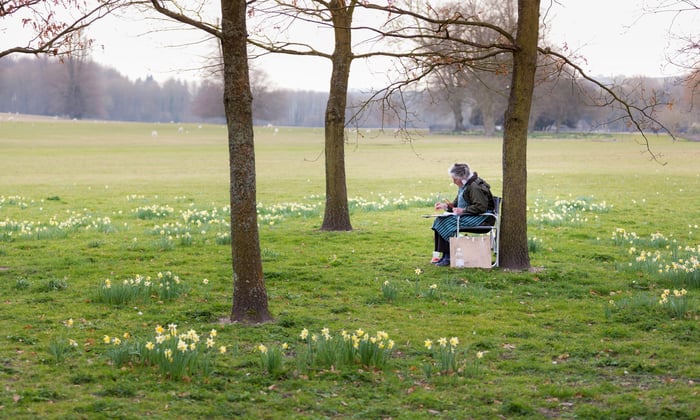
6 Tips for getting creative this autumn
By Tiffany Robinson, Programme Coordinator and Tutor - Foundation Diploma Art and Design & Online Foundation Certificate in Art and Design
As the long summer days begin to recede comes the autumn light that gives rich intensity at the start or end of the day, I have put together tips focusing on experiencing the light, and the land to make more visceral responses in...
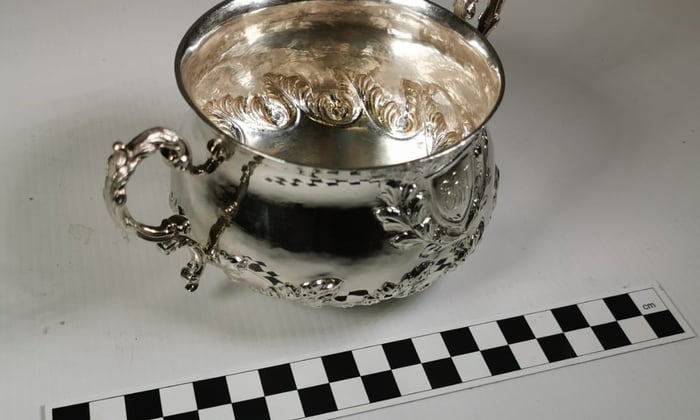
Studying an object from the Edward James Collection: Silver porringer
By Finn Banwell, Foundation Degree Arts - Metalwork student I first became interested in metalwork when I visited a Japanese silversmith’s workshop. Whilst exploring Kyoto, I found “Artsmith”, a local shop selling a variety of craft pieces and very detailed, intricate examples of metalwork. Also, in this shop, was a workshop, where the Craftsman and owner of ...
Tutors
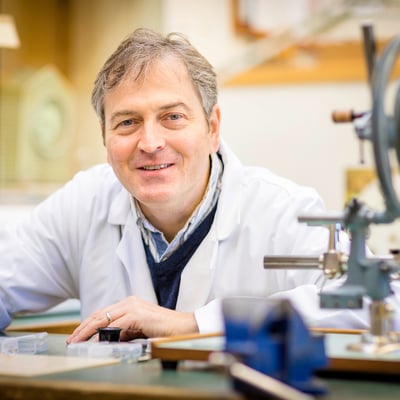
Malcolm Archer
Subject Leader, Clocks (and Related Objects)
Malcolm's extensive experience in private practice, as well as the heritage sector/museums, lies behind his in-depth understanding of the profession. He brings a comprehensive knowledge of traditional craft skills, theory and contextual history. He also has an interest in new and innovative ways of applying conservation to mechanical objects.
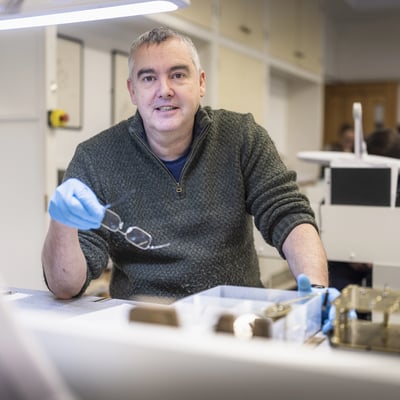
Tim Hughes
Subject Tutor, Clocks (and Related Objects)
Tim Hughes MBHI, clock maker, trained at West Dean College and works as a clockmaker and scientific instrument restorer, and as external consultant at Bellmans Auctioneers. He has received several awards, including the Trustees' Prize while at West Dean College and a QEST Scholarship.
